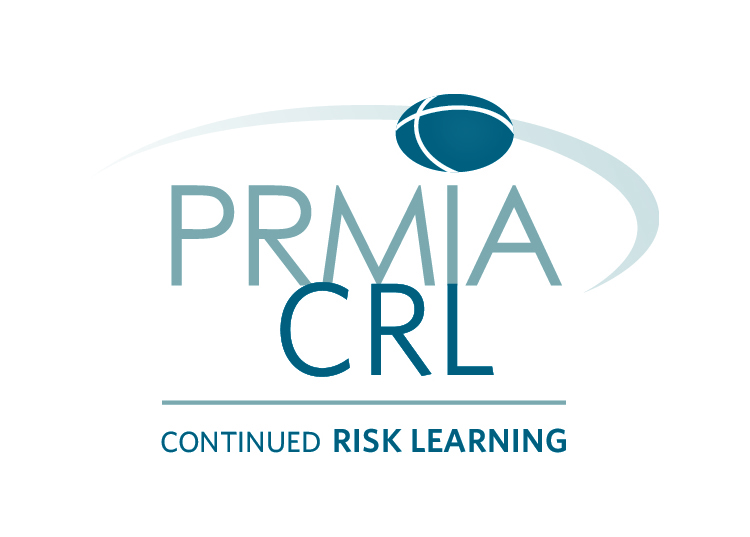Credit Sensitivity & the Across-the-Curve Credit Spread AXI

Thought Leadership Webinar: This panel discussion will provide participants with background and context on CSR’s and Spreads in the United States for a post LIBOR-world, as well as an overview of the Across-the-Curve Credit Spread Index (AXI). Created jointly by Professor Darrell Duffie of Stanford University and Professors Antje Berndt and Yichao Zhu of Australian National University, AXI is a measure of the recent cost of wholesale unsecured debt funding for publicly listed US bank holding companies and their commercial banking subsidiaries.
 Date:
Date:
August 18, 2021
 Time:
Time:
10:00 - 11:00 a.m. EDT
3:00 - 4:00 p.m. BST
 Session Length:
Session Length:
60 minutes
 Panel:
Panel:
Marcus Burnett
Chief Executive, SOFR Academy
Samim Ghamami
Sr. Researcher, NYU and UC Berkeley
Meredith Coffey
Sr. VP, Loan Syndications and Trading Assoc.
Allie Burton
Fixed Income Derivatives Specialist, Vanguard
Conceived in an academic paper[1] jointly by Professors Antje Berndt, Professor Darrell Duffie and Dr. Yichao Zhu, AXI is a measure of the recent cost of wholesale unsecured debt funding for publicly listed U.S. bank holding companies and their commercial banking subsidiaries. The index is a weighted average of credit spreads for unsecured debt instruments with maturities ranging from overnight to five years, with weights that reflect both transactions volumes and issuance volumes.
AXI is scaled down to create standard term structure tenors, for example, 1 month, 3 months, 6 months, etc. and is added to a variation of SOFR, for example CME Term SOFR[2] or Simple daily SOFR, to create a credit sensitive index that will represent an important option for market participants. AXI was one of the indexes discussed during the Federal Reserve Bank of New York-hosted Credit Sensitivity Workshops[3], which explored ways to support the transition of loan products away from LIBOR. Importantly, AXI was not developed to replicate USD LIBOR and is not based on the short-term unsecured markets that once underpinned LIBOR. AXI reflects broader credit conditions based on a deeper pool of transactions and is generally less volatile. AXI represents a more measured compromise between a lender and borrower.
Key takeaways of this panel discussion include:
- Understand the market background and context for Credit Sensitive Rates and Spreads in the United States
- Understand the Across-the-Curve Credit Spread Index (AXI)
- Understand the approach and construction methodology behind AXI
- Learn how to use AXI in loans, derivatives, and other products
| About Our Experts |
|
|
|
|
|
 |
|
Marcus Burnett is the Chief Executive of SOFR Academy (SOFR.org), a leading education technology firm, data provider, and financial education services provider. He is an experienced Capital Markets consultant focusing on Financial Institutions and is a former interest rate derivatives trader. Marcus is an IBOR Transition industry leader assisting industry working groups, trade associations, and financial market participants in planning and execution of programs focused on IBOR transition to Alternate Reference Rates (ARR) across the G5 currencies. He has regular conversations with IBOR program leads at multinational Financial Institutions and members of the Alternative Reference Rate Committee (ARRC) as well as with trilateral Regulators.
Marcus is a member of the Bank of England sponsored Working Group on Sterling Risk-Free Reference Rates SONIA Regulatory Dependencies Task Force and ‘Tough Legacy’ Task Force both chaired by the Financial Conduct Authority. He has extensive experience in assisting banking and capital markets firms across a range of topics including organized venue trading, funding and liquidity, stress testing (CCAR / DFAST), asset liability management, funds transfer pricing, capital optimization, electronic trading, derivatives reform, deposit and pricing strategy, regulatory change and technology implementation. He has successfully executed client engagements across North America, Europe and Asia Pacific.
Marcus earned degrees in Philosophy and Finance and has completed Executive programs from Harvard and Columbia Universities respectively. Marcus is a respected thought leader in the industry and he has been interviewed by the Wall Street Journal and cited by the International Financial Law Review. Marcus is based in New York.
|
|
 |
|
Samim Ghamami is a senior researcher at NYU and UC Berkeley and an adjunct professor of finance at NYU. He is also a Senior Advisor at SOFR Academy. Ghamami has been a senior economist at Goldman Sachs, an adjunct professor of economics at Columbia University, an associate director at the U.S. Department of the Treasury, Office of Financial Research, and an economist at the Federal Reserve Board. He has been an advisor to the Bank for International Settlements and the Financial Stability Board on a number of post-2008 finance and economic policy reform programs.
Ghamami serves on the advisory board of the graduate finance program at NYU Courant institute. He has also served on National Science Foundation panels on mathematics and finance. He holds a PhD in Finance and Operations Research from USC.
|
|
 |
|
Meredith Coffey is Executive Vice President of the Loan Syndications and Trading Association (LSTA). In this position, she runs the Research Department and co-heads the LSTA’s public policy initiatives, which help facilitate continued availability of credit and the efficiency of the loan market. In addition, Ms. Coffey heads efforts to analyze current and anticipated loan market developments, helping the LSTA build strategy and improve market efficiency, and providing insight through weekly newsletters, periodic conferences, webcasts, and media commentary.
Ms. Coffey is on the Alternative Reference Rates Committee (ARRC), which is working to transition from LIBOR to a successor rate; she co-chairs the ARRC’s Business Loans Working Group and the Loans Operations Sub-Group. She and the analyst team also engage market participants, press and regulators on issues and developments in the global loan market. Ms. Coffey has published analysis on the syndicated loan market in numerous books and periodicals, presents frequently, and has testified several times before Congress on issues pertaining to the loan and CLO markets.
Prior to joining the LSTA, Ms. Coffey was Senior Vice President and Director of Analysis focusing on the loan and adjacent markets for Thomson Reuters LPC, working in and running loan research for 15 years. Ms. Coffey has a B.A. in Economics from Swarthmore College and a graduate degree in Economics from New York University.
|
|
 |
|
Allie Burton, CFA, is a Fixed Income Derivatives Specialist at Vanguard. She leads the analysis of Credit Sensitive Rates and supports the ongoing effort related to the LIBOR transition.
Previously Allie managed the strategy, development, and implementation of portfolio construction and asset allocation advice technology for Vanguard. She also has experience in Vanguard’s investment product group, first as an Investment Analyst and subsequently as the Chief of Staff.
Allie is currently pursuing an MBA at the University of Chicago Booth School of Business and has earned a degree in Marketing from the University of Delaware. She is a CFA Charterholder and a member of the CFA Society of Philadelphia. |
|
| Continued Risk Learning Credits: 1 |
 PRMIA Continued Risk Learning (CRL) programs provide you with the opportunity to formally recognize your professional development, documenting your evolution as a risk professional. Employers can see that you are not static, making you a highly valued, dynamic, and desirable employee. The CRL program is open to all Contributing, Sustaining, and Risk Leader members, providing a convenient and easily accessible way to submit, manage, track and document your activities online through the PRMIA CRL Center. To request CRL credits, please email [email protected].
PRMIA Continued Risk Learning (CRL) programs provide you with the opportunity to formally recognize your professional development, documenting your evolution as a risk professional. Employers can see that you are not static, making you a highly valued, dynamic, and desirable employee. The CRL program is open to all Contributing, Sustaining, and Risk Leader members, providing a convenient and easily accessible way to submit, manage, track and document your activities online through the PRMIA CRL Center. To request CRL credits, please email [email protected].
| |
Registration |
|
| |
Membership Type |
Price |
|
| |
|
|
|
| |
Members (Sustaining, Corporate, RIM & Contributing)
|
COMPLIMENTARY |
|
| |
Non Member |
$30 USD
|
|
| |
|
|
|
If this is your first time accessing the PRMIA website you will need to create a short user profile to register. Save on registration by becoming a member.